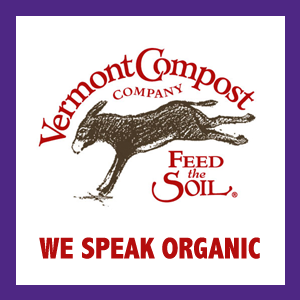Good records are an investment in your business - they increase your productive capacity.
To make good decisions, you need to know the yields you've achieved, the time you've put into completing key tasks, and how much it costs to grow a crop and run your farm. This information is actionable in the short term and in the long term.
Good records increase accountability. When you know how many bunches of kale your crew averages in an hour, you have the ability to set expectations, and that let's people know when they are doing well and when they are doing poorly.
Good records increase your ability to predict the future. If you know how many bunches of kale a worker can pick in an hour, you can predict how long it will take to complete the day's kale harvest, allowing you to set the stage for the next task. If you have good sales, yield, and time records, you create the ability to accurately project how much kale you should grow to meet the demand you expect from your markets, and how many people you will need to hire to get that job done.
Good records also increase your capacity to attract capital in the form of loans. They demonstrate to lenders that you treat your business as a business, and that you have the information you need to make the decisions you need to make to ensure that they get their money back.
Don’t have time for record-keeping? Fortunately, good records help create more time to collect and use your records. When you measure your operation’s performance and use actionable information to make decisions that increase productivity and profitability, you increase the amount of time and money that you can invest in keeping and evaluating your farm’s data.
(By the way, that's good record-keeping from day one. If you are a one-person show on a half acre, it helps to create accountability for yourself and predict your own outcomes. And if you decide to grow your business, you'll need those records to facilitate that growth.)
To make good decisions, you need to know the yields you've achieved, the time you've put into completing key tasks, and how much it costs to grow a crop and run your farm. This information is actionable in the short term and in the long term.
Good records increase accountability. When you know how many bunches of kale your crew averages in an hour, you have the ability to set expectations, and that let's people know when they are doing well and when they are doing poorly.
Good records increase your ability to predict the future. If you know how many bunches of kale a worker can pick in an hour, you can predict how long it will take to complete the day's kale harvest, allowing you to set the stage for the next task. If you have good sales, yield, and time records, you create the ability to accurately project how much kale you should grow to meet the demand you expect from your markets, and how many people you will need to hire to get that job done.
Good records also increase your capacity to attract capital in the form of loans. They demonstrate to lenders that you treat your business as a business, and that you have the information you need to make the decisions you need to make to ensure that they get their money back.
Don’t have time for record-keeping? Fortunately, good records help create more time to collect and use your records. When you measure your operation’s performance and use actionable information to make decisions that increase productivity and profitability, you increase the amount of time and money that you can invest in keeping and evaluating your farm’s data.
(By the way, that's good record-keeping from day one. If you are a one-person show on a half acre, it helps to create accountability for yourself and predict your own outcomes. And if you decide to grow your business, you'll need those records to facilitate that growth.)




 RSS Feed
RSS Feed
